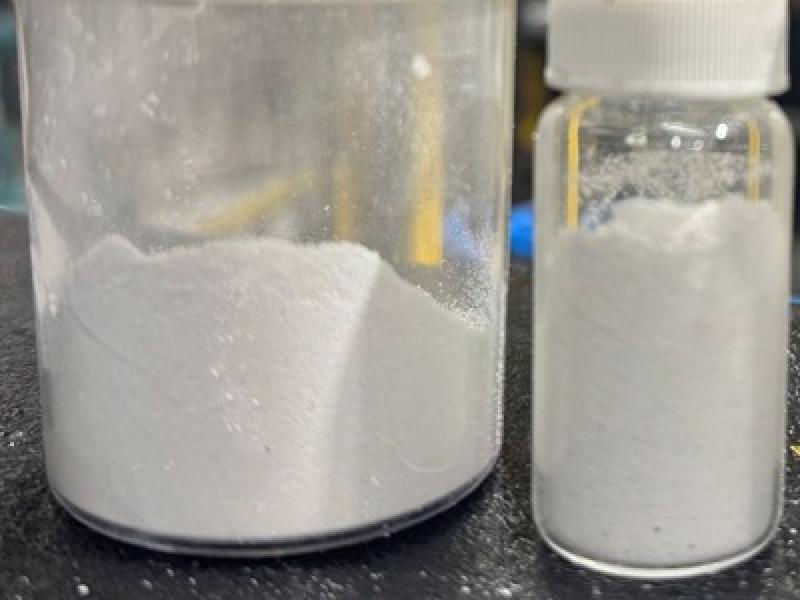 An initiative by the Circular Innovation Council (CIC) will see Canadian grocery heavyweights Metro Inc., Sobeys Inc. and Walmart Canada participate in a reusable food container pilot in Ottawa starting mid-2024.
An initiative by the Circular Innovation Council (CIC) will see Canadian grocery heavyweights Metro Inc., Sobeys Inc. and Walmart Canada participate in a reusable food container pilot in Ottawa starting mid-2024.
Customers will be able to purchase food in reusable containers from participating locations, then return the containers to smart bins from Vancouver-based Reusables.com for washing and redistribution.
Intended to explore ways to reduce single-use plastic waste, it will be “the largest collaborative reuse initiative in the country,” and “demonstrate scalable, convenient, and permanent solutions to reducing single-use plastic packaging,” according to a release.
“We’ve worked pretty tirelessly over the last couple of years to create a strategic plan that brings them (Ottawa) to zero-waste. They’re a perfect host for this kind of activity,” Jo-Anne St. Godard, the executive director of the CIC, told Sustainable Biz Canada in an interview.
A notable absence from the pilot is Loblaw. St. Godard said Loblaw declined to participate in the Ottawa pilot because it is engaged in its own projects, but remains in active conversations to possibly join future programs.
The CIC is a Toronto-headquartered non-profit that supports circular economy initiatives.
Why Ottawa was chosen
St. Godard said the three grocers are part of the council and are actively pursuing opportunities to reduce plastic waste. Because it is difficult for one grocer to do it alone, the CIC identified a way to “have them maybe uncharacteristically collaborate around this.” The participants, which comprise a “substantial” amount of the Canadian grocery market, agreed.
St. Godard said Ottawa was chosen because it is a “perfect-sized market.” The capital city of Canada is a member of CIC and is working on its zero-waste strategic plan. The city found its residents are interested in reducing plastic waste, making Ottawa an ideal location to promote and advocate for the council’s goals.
The participating grocers and Environment and Climate Change Canada are co-funding the project at a cost of approximately $500,000.
Piloting reuse
The pilot will follow a shared-pool model with participants in a specific area of Ottawa, meaning all the grocery participants will draw from the same pool of standardized reusable containers.
The CIC is searching for an accessible location that simplifies logistics, is cost effective and can onboard other food sector businesses like cafés and bakeries.
Consumers will be able to purchase hot or cold food in containers that may range from reusable plastic to stainless-steel for no upcharge or deposit. The number of participating stores is not yet decided; St. Godard estimates approximately six from the start, but more may be involved.
Each store will have the choice of selecting containers that match its needs, she added. The container suppliers – and amount of containers required – are not yet finalized.
Each location will have a Reusables.com drop-off bin, and additional return options will be provided at locations in the area of the pilot program, such as transit hubs and municipal locations. A charge will only be applied if the container is not returned within a specified timeframe.
The grocers will manage and share costs for reverse logistics, cleaning and recirculating the containers.
Reusables.com will follow the movements of containers through washing and distribution.
The pilot will provide the data to measure the environmental impact and help inform other reuse programs across Canada, St. Godard said. The program, which has the potential to become permanent, will run until March 2025.
Vancouver and Banff are the next locations for potential expansion of the pilot, she added.
What the grocers are doing on plastic waste
The grocers in the pilot have already taken steps to reduce single-use plastic waste.
In its 2023 corporate responsibility report, Metro outlined efforts to increase the recycled content and recyclability of its plastic containers for fresh products. It uses northbox OCEAN insulated boxes made from entirely recyclable materials to move its bulk fish products and explored alternatives to single-use plastics in the fresh products section.
Sobeys began planning for a compostable meat packaging pilot from Eco Guardian set to begin in Halifax. It also advanced plans to change 143 products using unrecyclable black plastics to packaging that supports a circular economy. The grocer’s Voila food delivery service has a bag recycling program.
Walmart Canada committed to having 100 per cent recyclable packaging in its private brands by 2025 and is a member of various organizations that centre around reducing plastic waste, according to its Charter on Plastic.
The grocers have also eliminated single-use plastic bags from their Canadian stores.










